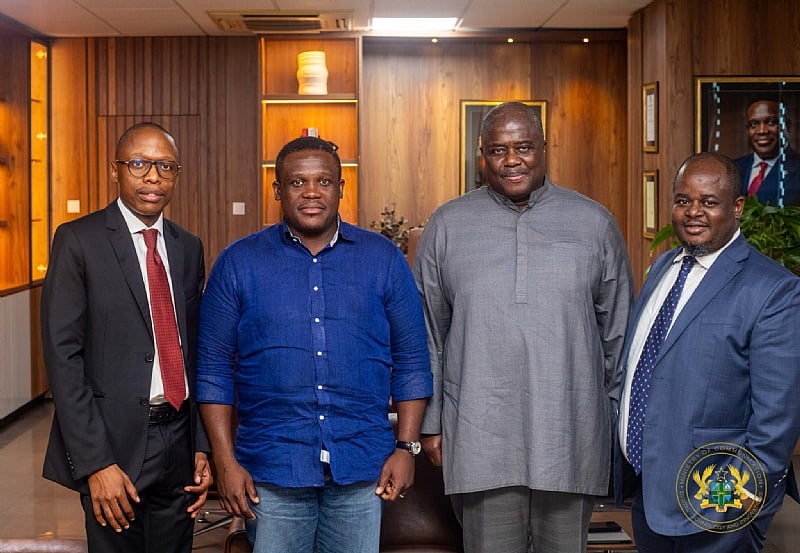The escalating public discontent over DSTV subscription rates in Ghana has prompted government intervention. Mr. Samuel Nartey George, the Minister for Communication, Digital Technology and Innovations, has formally requested Multichoice Ghana, the operators of DSTV, to implement a 30% price reduction. This call for a substantial price cut stems from the significant appreciation of the Ghanaian cedi against other currencies over the past five months, a period during which DSTV subscription prices have remained unchanged. The Minister argues that this currency fluctuation has created a favorable economic environment for a price reduction, allowing DSTV to share the financial benefits with its Ghanaian subscribers. He pointedly contrasted the need for direct price cuts with the company’s current strategy of offering temporary promotional packages, arguing that sustained lower prices would provide more tangible relief to consumers.
The Minister’s request for a price reduction is not isolated but rather a component of a broader dialogue with Multichoice Ghana concerning several pertinent issues affecting the broadcasting landscape in Ghana. Central among these is the concern about outdated content, particularly beyond Premier League football. Many subscribers have expressed dissatisfaction with the perceived lack of fresh and engaging programming, leading to calls for a reevaluation of the overall content offering. This issue, combined with the high subscription costs, has fueled public frustration and underscores the need for a responsive and consumer-centric approach from DSTV. The Minister stressed the importance of aligning pricing with the current economic realities and ensuring that subscribers receive value for their money, especially given the improved performance of the cedi.
In addition to pricing and content concerns, the meeting also addressed the critical issues of piracy and local content development. The Minister expressed serious concerns regarding the increasing prevalence of cross-border piracy, specifically highlighting the unauthorized use of DSTV decoders imported from neighboring countries. This illicit practice, he argued, not only undermines the financial viability of local service providers like Multichoice Ghana but also deprives the government of much-needed revenue. Therefore, collaborative efforts to combat piracy and enforce regulatory compliance are essential to protect the local broadcasting industry and ensure a level playing field for all operators.
Furthermore, the Minister emphasized the importance of promoting local content creation as a key driver of economic growth and job creation. He advocated for increased investment in Ghanaian film production and the integration of more local content onto DSTV platforms. This strategy, he argued, would not only enrich the programming available to Ghanaian viewers but also contribute significantly to the development of the local film industry, fostering talent, generating employment, and boosting revenue for local producers. This focus on local content aligns with the government’s broader objective of promoting cultural diversity and nurturing the creative arts sector.
The government’s proactive stance is further exemplified by the development of a new broadcasting bill. This impending legislation aims to gradually increase local content requirements across all broadcasting platforms, signifying a commitment to fostering a vibrant and sustainable local media ecosystem. By mandating a greater proportion of locally produced content, the government seeks to stimulate investment in the local film and television industry, create more opportunities for Ghanaian creatives, and ensure that local narratives and perspectives are prominently represented in the national broadcasting landscape.
The meeting between the Minister and the DSTV delegation, led by Dr. Keabetswe Modimoeng, Group Executive for Regulatory and Corporate Affairs, concluded with a commitment from Multichoice Ghana to formally respond to the government’s requests by July 21st. Dr. Modimoeng acknowledged the validity of the concerns raised and expressed a willingness to engage constructively with the government to find mutually beneficial solutions. While recognizing the need to address public interest concerns, he also emphasized the importance of maintaining business sustainability. The DSTV team pledged to provide concrete proposals by the stipulated deadline, paving the way for further discussions and potential implementation of agreed-upon measures by the end of the month. Moreover, Multichoice Ghana reiterated its commitment to combating piracy and providing regular updates on its progress in tackling this pervasive issue. This commitment signals a recognition of the shared responsibility between government and industry stakeholders in curbing illegal activities and ensuring the long-term health of the broadcasting sector.


